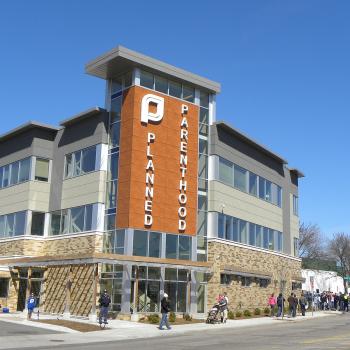Earlier this week, Vermont senator and Democratic presidential candidate Bernie Sanders spoke to 12,000 students at Virginia’s Liberty University.
Sanders’s visit provided some of the more substantive political theater in the 2016 campaign thus far. The self-proclaimed “democratic socialist” proved himself a bit more facile with the Bible than the Donald, and he received a polite if somewhat hesitant response from his evangelical audience.
It’s hard not to appreciate politicians who go into “enemy territory.” Rand Paul went to Berkeley last year, where he got a more enthusiastic response than he’s gotten from prospective Republican voters. Paul’s libertarianism, though, was a much better fit for Berkeley than Sanders’s political platform is for Liberty. One can only imagine what would transpire on many campuses should Donald Trump or Rick Santorum hazard a visit. (Before he was quite so famous, Ben Carson spoke at a commencement at the University of South Alabama, my prior place of employment).
Certain pundits regularly opine that we need more political civility in America. Some are even foolish enough to suggest that things didn’t used to be so uncivil, which demonstrates that they have never dipped far into the annals of American political journalism. Still, both Liberty and Sanders deserve credit for engaging in honest dialogue.
I find it not at all surprising that young evangelicals would give Bernie Sanders a respectful hearing. (At Liberty, Sanders’s speech was a required event, one should point out). Especially on college campuses, evangelicals today largely recognize that they need to work very hard to gain a hearing. In his The Democratic Virtues of the Christian Right, political scientist Jon Shields contends that most pro-life activists on American campuses are far more civil than their opponents. For example, pro-life students set up campus exhibits (often featuring images of aborted fetuses) and then patiently endure hateful epithets from pro-choice counterprotesters, all the while seeking to initiate civil conversations about abortion. Certainly, evangelicals — including Liberty’s founder — have engaged in very uncivil political dialogue, but many have changed at least their style if not their substance.
I saw Bernie Sanders when he was a first-term congressman. He spoke at my Alma mater, Middlebury College, a much more natural fit for Sanders’s politics than Liberty. Back in 1992, I found it amazing that he was a member of the House. It never occurred to me that he had a national political future.
Sanders deserves credit, both for his willingness to engage opponents and for political shrewdness. His appearance at Liberty garnered favorable coverage from many news outlets. I don’t think Sanders envisions making any sort of a play for the evangelical vote, which requires far more than referencing the golden rule in conjunction with income inequality. And it’s noteworthy to me that Sanders does not express any uneasiness about abortion. He claims, for instance, not to have watched the Planned Parenthood sting videos, a lack of interest I find rather unfathomable regardless of one’s position on abortion rights.
I’ve never had the chance to visit Liberty University, but it’s remarkable how quickly it’s become a prime political destination. Liberty has supplanted Bob Jones University, which I believe Mitt Romney skipped in 2012. And if Democrats follow Sanders’s example and travel to Lynchburg, it will only enhance the profile of the university and the richness of our political discourse.
















